
Gokapi is a lightweight server to share files, which expire after a set amount of downloads or days. It is similar to the discontinued Firefox Send, with the difference that only the admin is allowed to upload files. In this step by step guide I will show you how to install Gokapi on your Synology NAS using Docker & Portainer.
STEP 1
Please Support My work by Making a Donation.
STEP 2
Install Portainer using my step by step guide. If you already have Portainer installed on your Synology NAS, skip this STEP. Attention: Make sure you have installed the latest Portainer version.
STEP 3
Make sure you have a synology.me Wildcard Certificate. Follow my guide to get a Wildcard Certificate. If you already have a synology.me Wildcard certificate, skip this STEP.
STEP 4
Go to Control Panel / Login Portal / Advanced Tab / click Reverse Proxy. Follow the instructions in the image below.
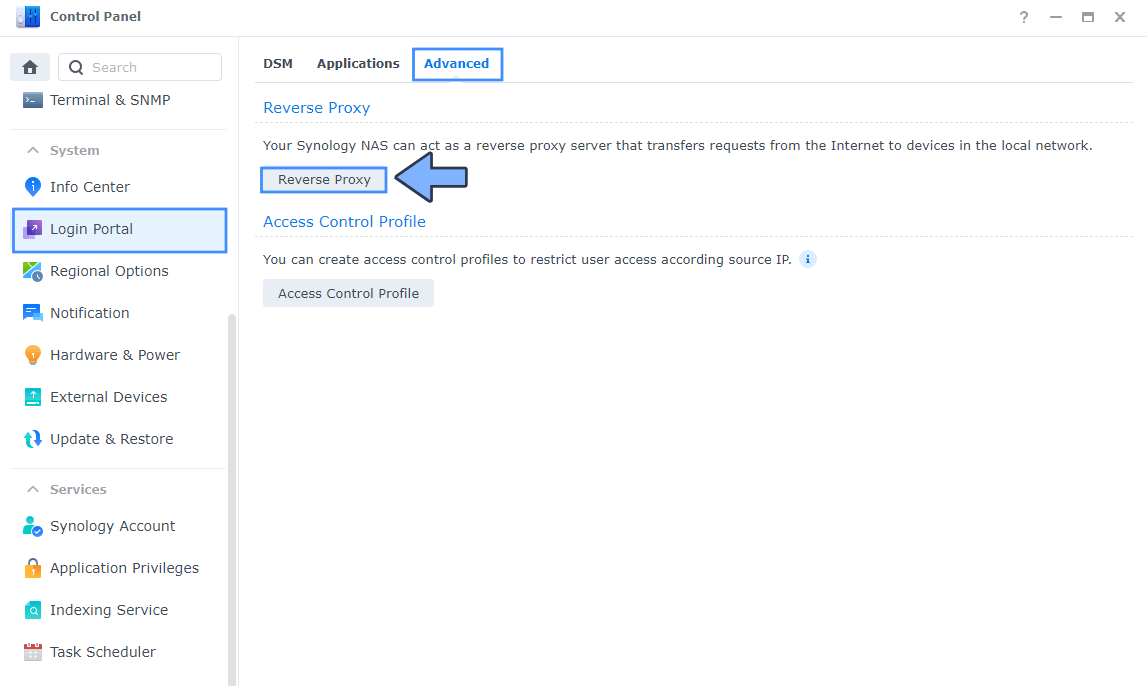
STEP 5
Now click the “Create” button. Follow the instructions in the image below.
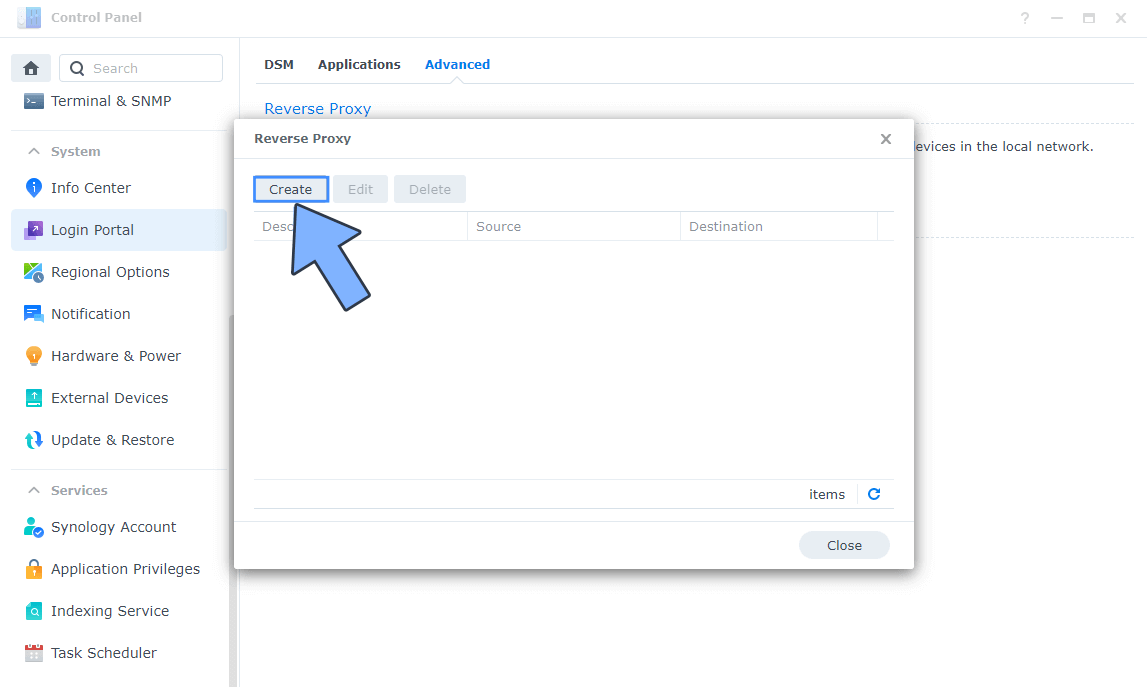
STEP 6
After you click the Create button, the window below will open. Follow the instructions in the image below.
On the General area, set the Reverse Proxy Name description: type in Gokapi. After that, add the following instructions:
Source:
Protocol: HTTPS
Hostname: gokapi.yourname.synology.me
Port: 443
Check Enable HSTS
Destination:
Protocol: HTTP
Hostname: localhost
Port: 53842
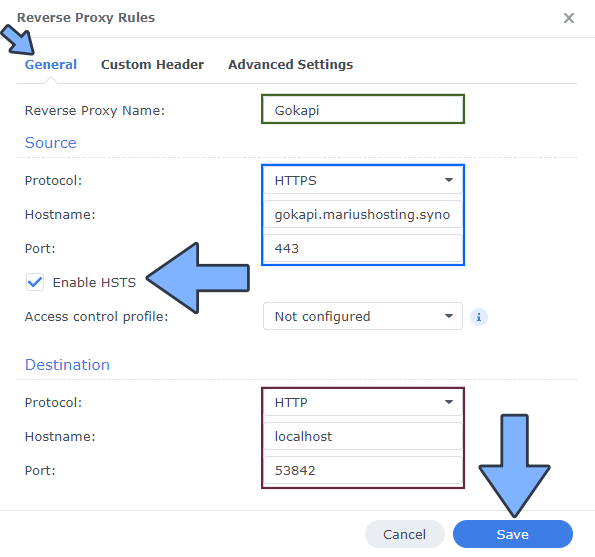
STEP 7
On the Reverse Proxy Rules click the Custom Header tab. Click Create and then, from the drop-down menu, click WebSocket. After you click on WebSocket, two Header Names and two Values will be automatically added. Click Save. Follow the instructions in the image below.

STEP 8
Go to Control Panel / Network / Connectivity tab/ Check Enable HTTP/2 then click Apply. Follow the instructions in the image below.
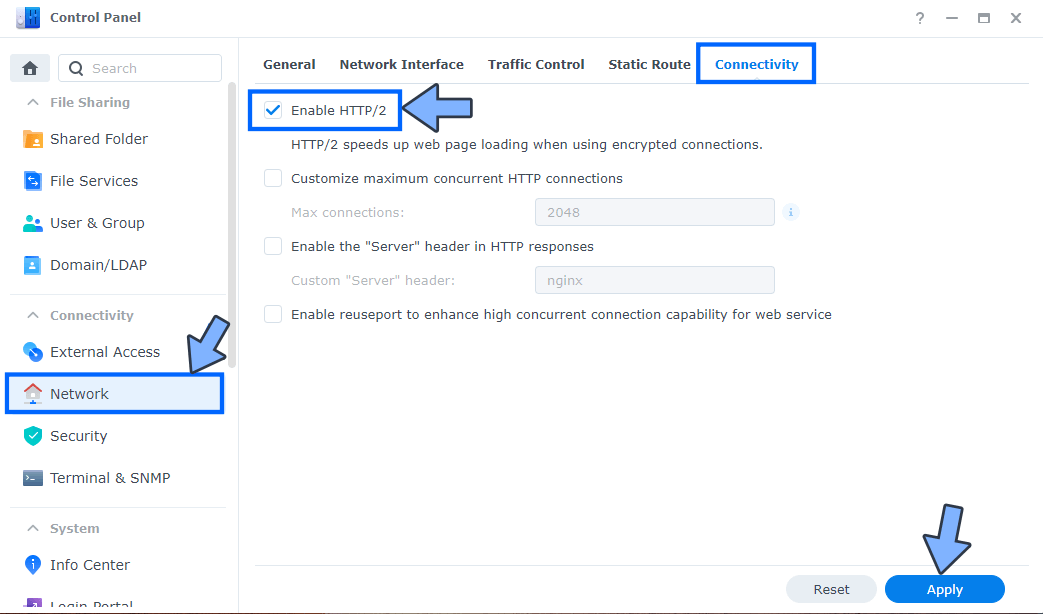
STEP 9
Go to Control Panel / Security / Advanced tab/ Check Enable HTTP Compression then click Apply. Follow the instructions in the image below.
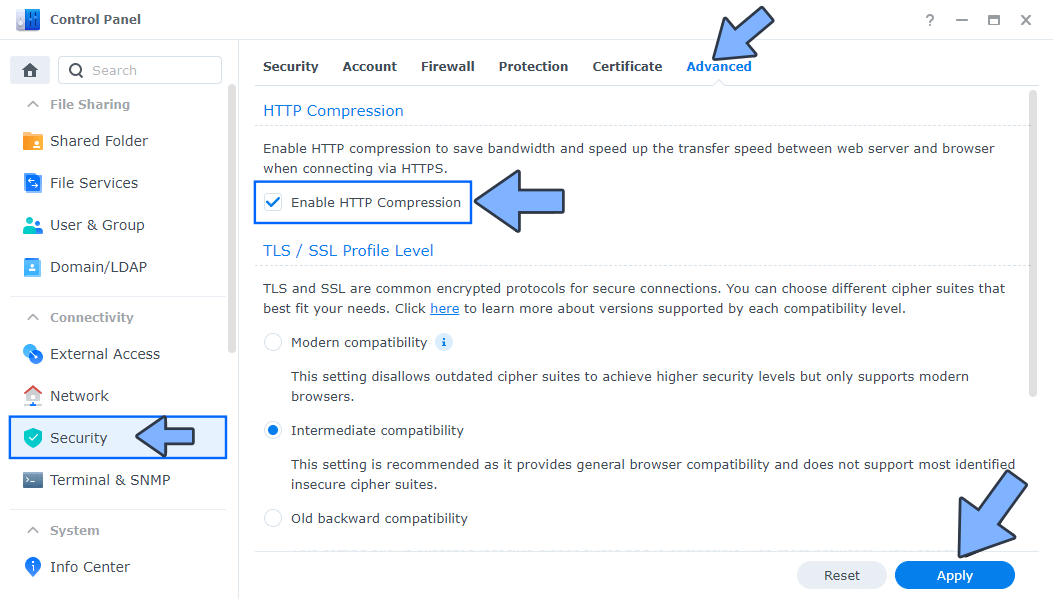
STEP 10
Go to File Station and open the docker folder. Inside the docker folder, create one new folder and name it gokapi. Follow the instructions in the image below.
Note: Be careful to enter only lowercase, not uppercase letters.
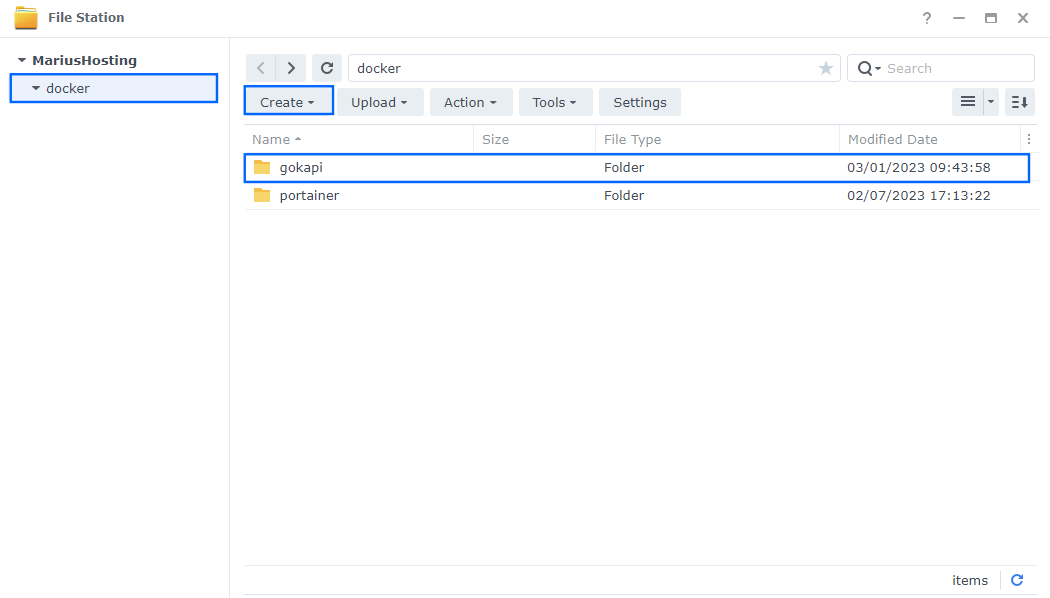
STEP 11
Now create two new folders inside the gokapi folder that you created at STEP 10 and name them config and data. Follow the instructions in the image below.
Note: Be careful to enter only lowercase, not uppercase letters.
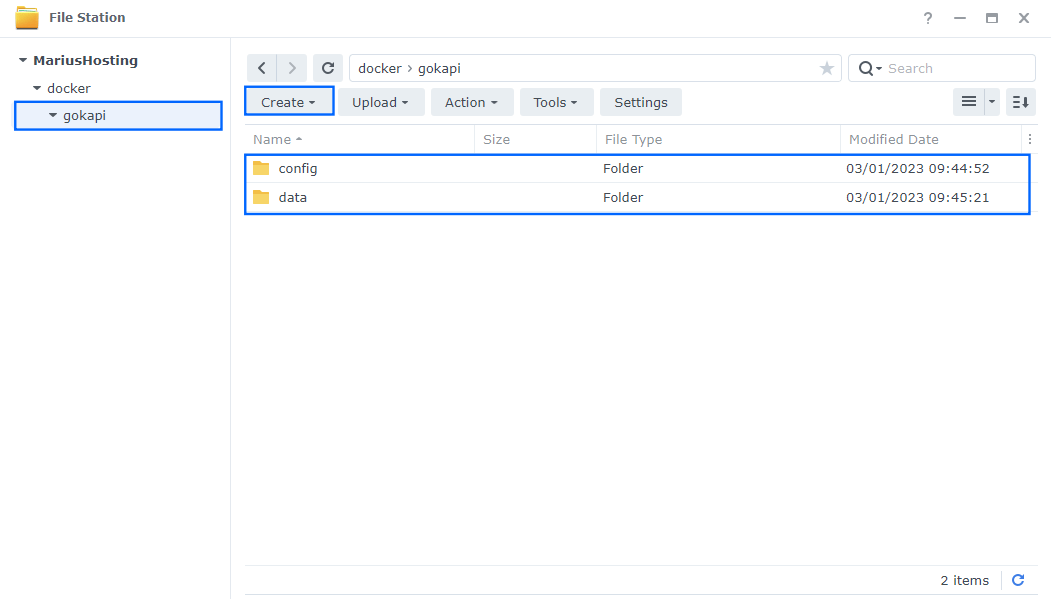
STEP 12
Log into Portainer using your username and password. On the left sidebar in Portainer, click on Home then Live connect. Follow the instructions in the image below.

On the left sidebar in Portainer, click on Stacks then + Add stack. Follow the instructions in the image below.

STEP 13
In the Name field type in gokapi. Follow the instructions in the image below.
version: "3.9"
services:
gokapi:
container_name: Gokapi
image: f0rc3/gokapi:latest
ports:
- 53842:53842
volumes:
- /volume1/docker/gokapi/data:/app/data
- /volume1/docker/gokapi/config:/app/config
restart: on-failure:5
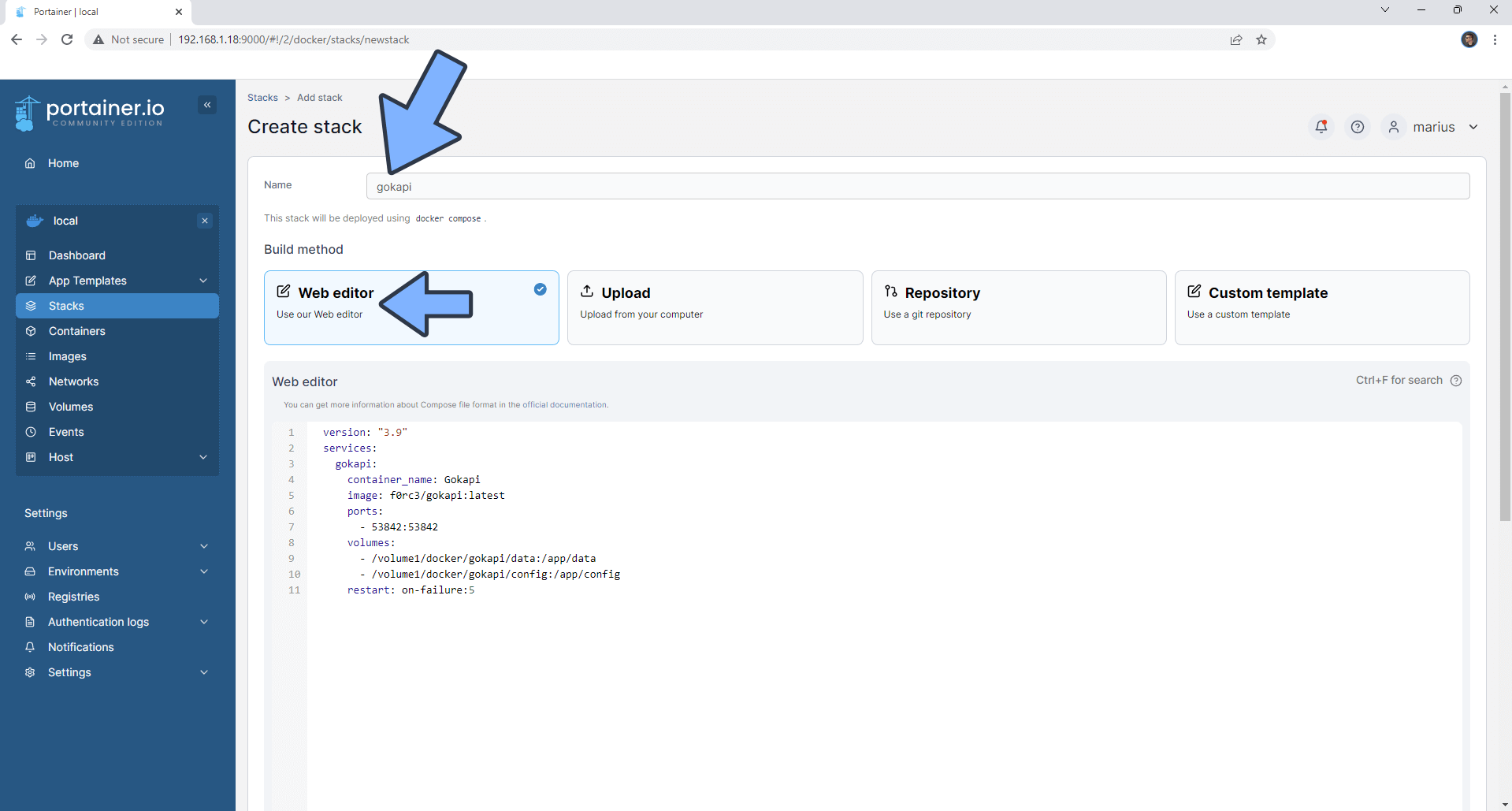
STEP 14
Scroll down on the page until you see a button named Deploy the stack. Click on it. Follow the instructions in the image below. The installation process can take up to a few minutes. It will depend on your Internet speed connection.
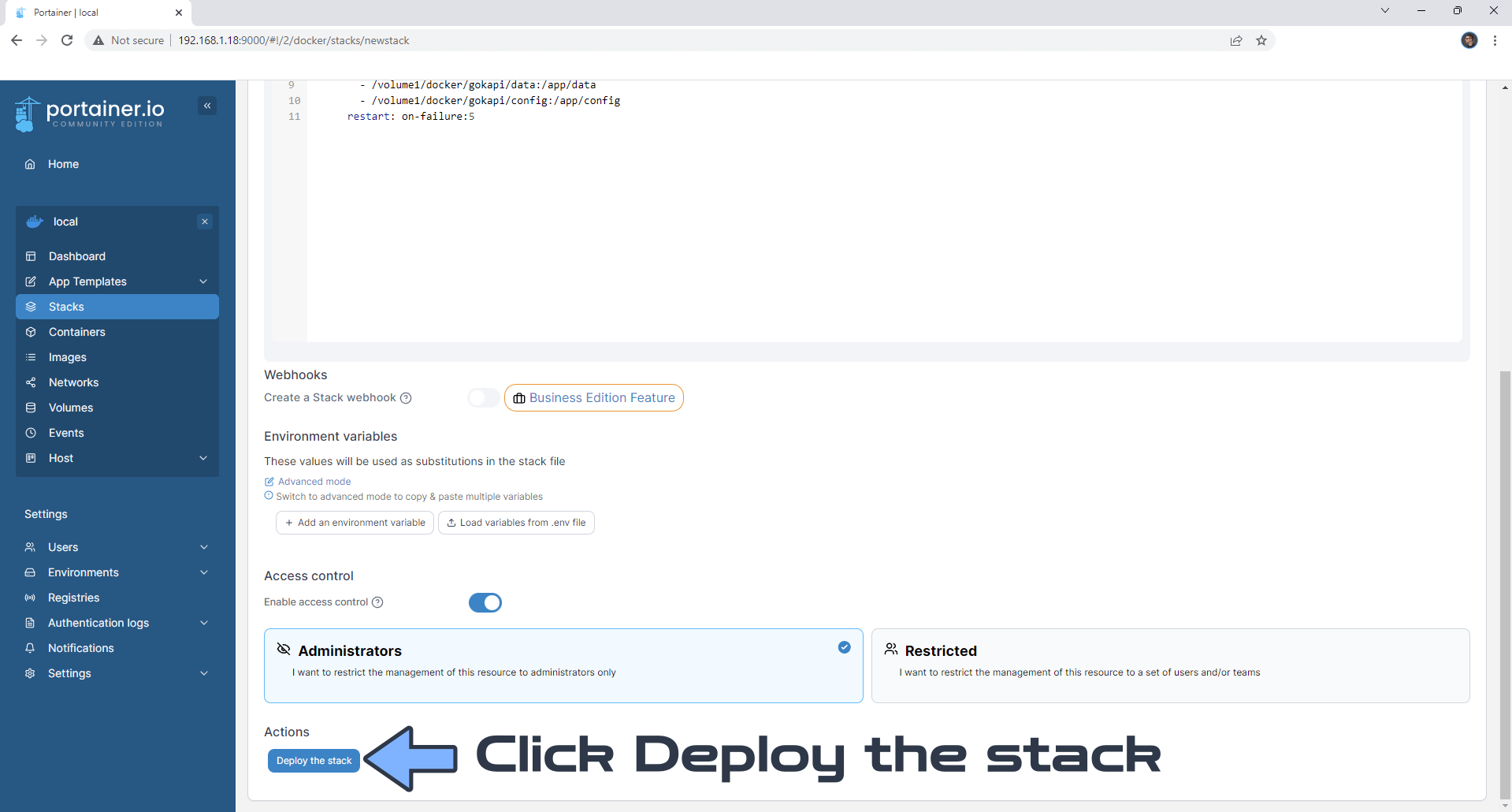
STEP 15
If everything goes right, you will see the following message at the top right of your screen: “Success Stack successfully deployed“.

STEP 16
🟢Please Support My work by Making a Donation. Almost 99,9% of the people that install something using my guides forget to support my work, or just ignore STEP 1. I’ve been very honest about this aspect of my work since the beginning: I don’t run any ADS, I don’t require subscriptions, paid or otherwise, I don’t collect IPs, emails, and I don’t have any referral links from Amazon or other merchants. I also don’t have any POP-UPs or COOKIES. I have repeatedly been told over the years how much I have contributed to the community. It’s something I love doing and have been honest about my passion since the beginning. But I also Need The Community to Support me Back to be able to continue doing this work.
STEP 17
Now open your browser and type in your HTTPS/SSL certificate like this https://gokapi.yourname.synology.me/setup In my case it’s https://gokapi.mariushosting.synology.me/setup If everything goes right, you will see the Gokapi Setup page. Click Next. Follow the instructions in the image below.
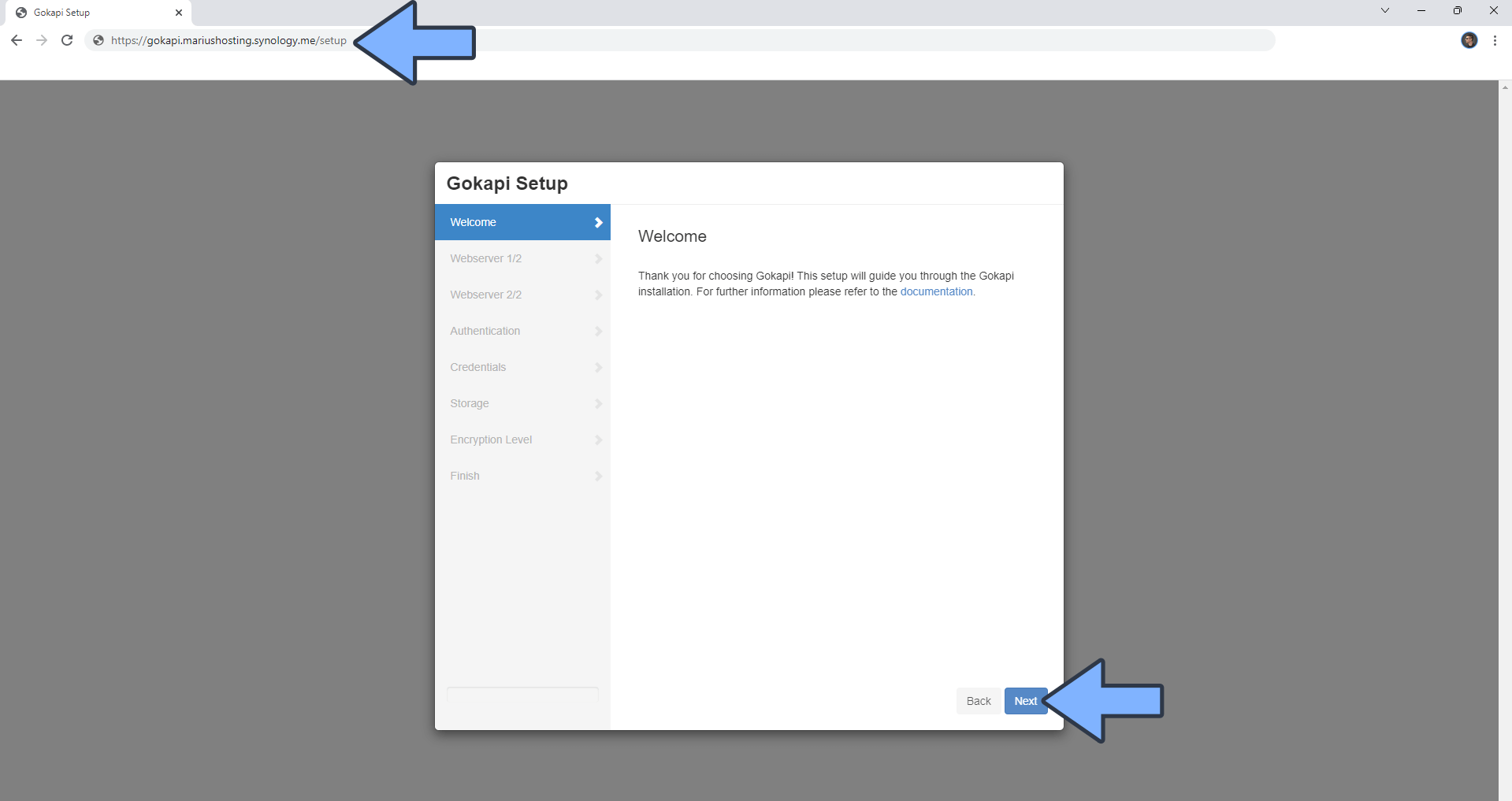
STEP 18
Click Next without touching anything else. Follow the instructions in the image below.
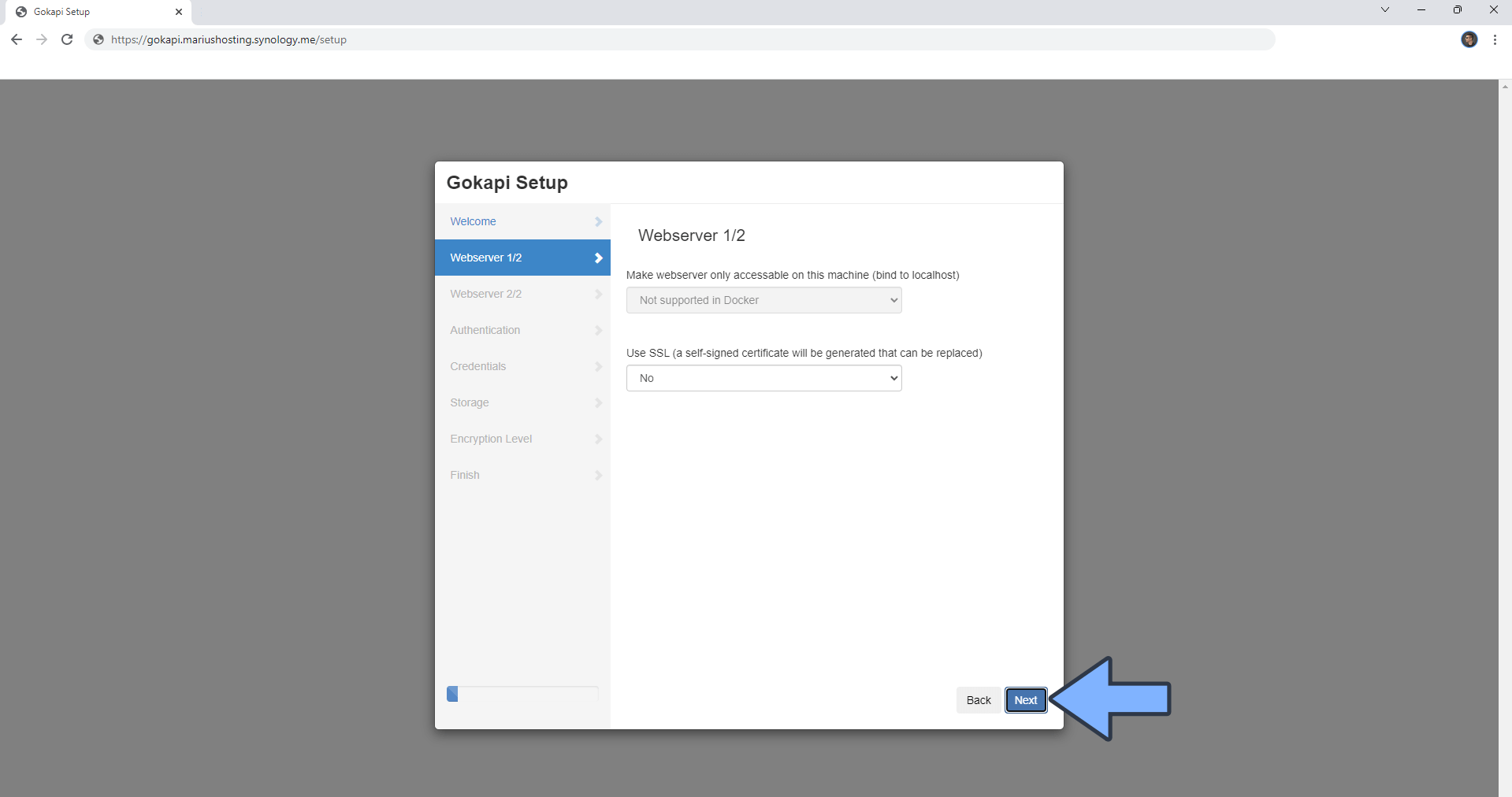
STEP 19
In the Public facing URL area type in your own Synology.me DDNS that you have previously created at STEP 6 with https:// at the beginning. In the Redirection URL for the index area type in your own Synology.me DDNS that you have previously created at STEP 6 with https:// at the beginning and /login at the end. Click Next. Follow the instructions in the image below.
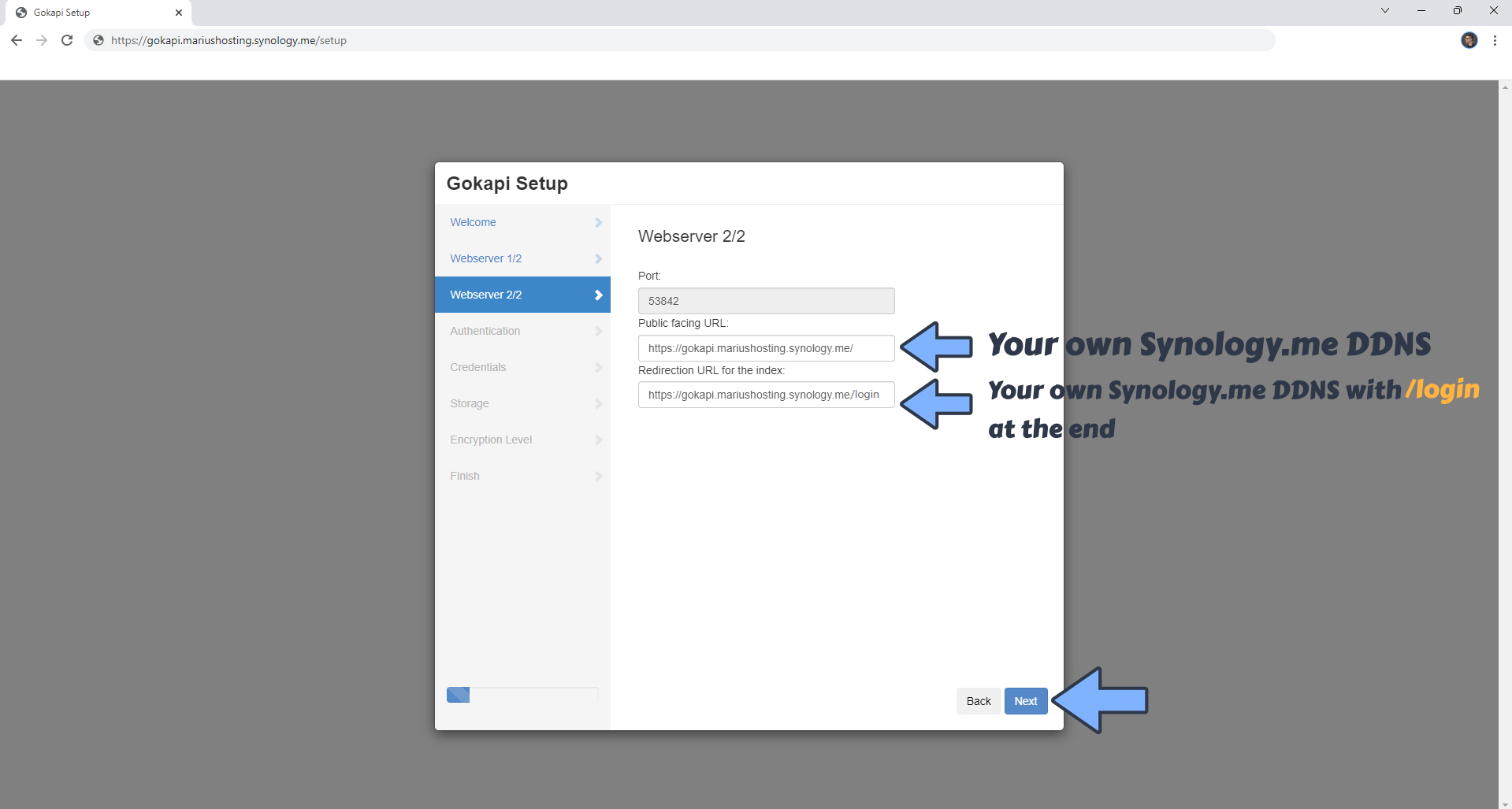
STEP 20
Select Username / Password then click Next. Follow the instructions in the image below.
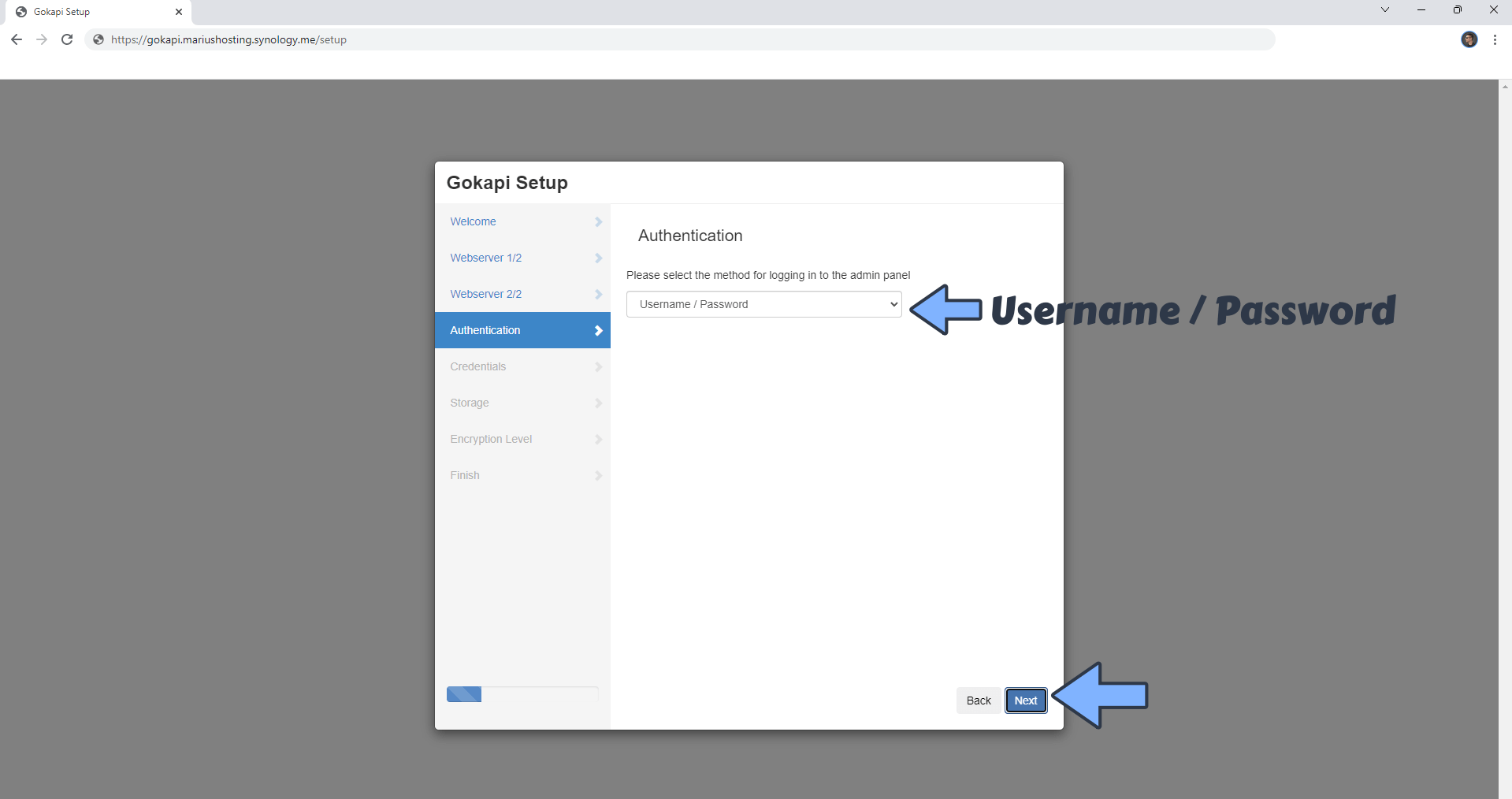
STEP 21
Type in your own Username and Password then click Next. Follow the instructions in the image below.
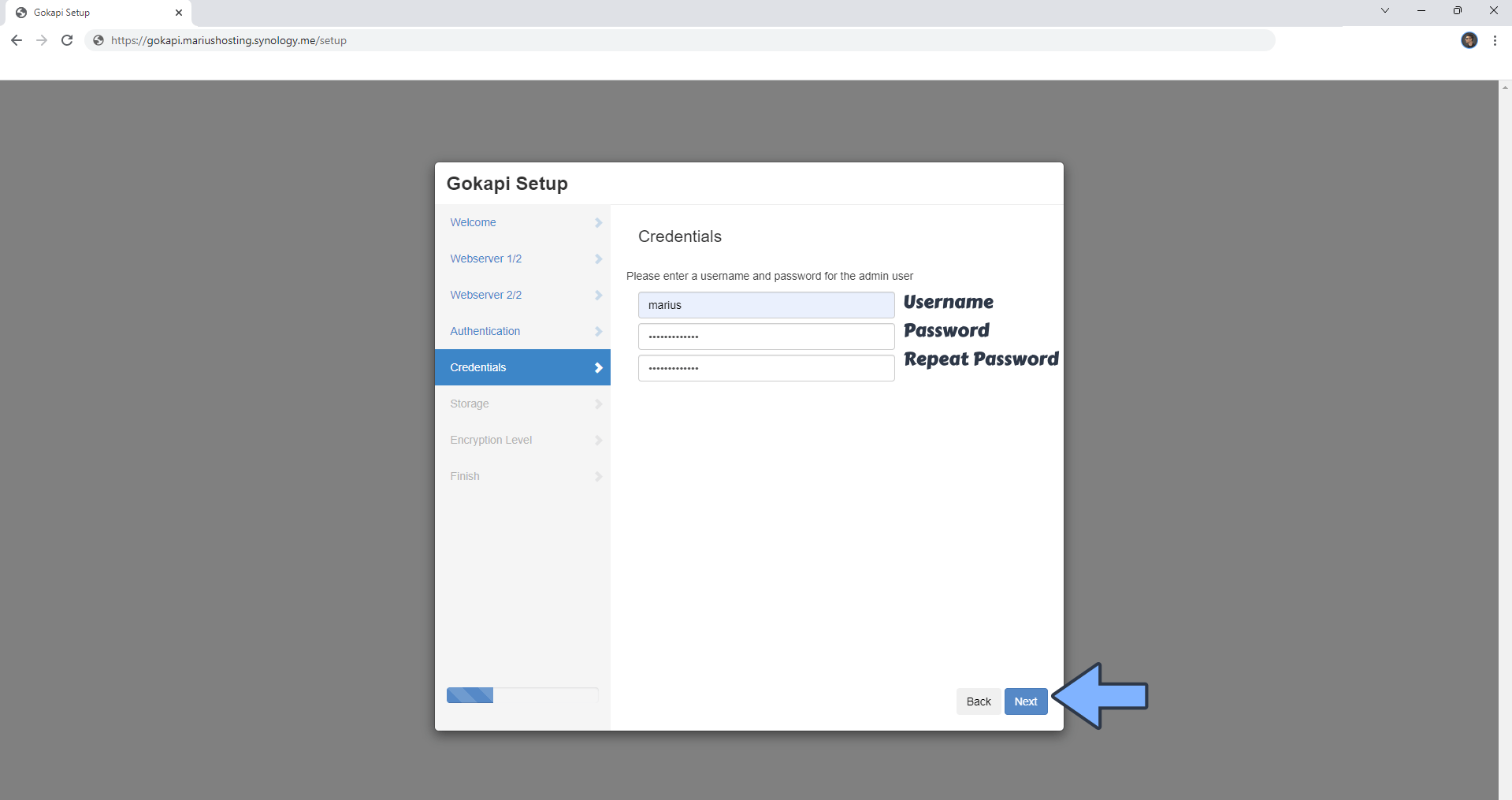
STEP 22
Click Next without touching anything else. Follow the instructions in the image below.
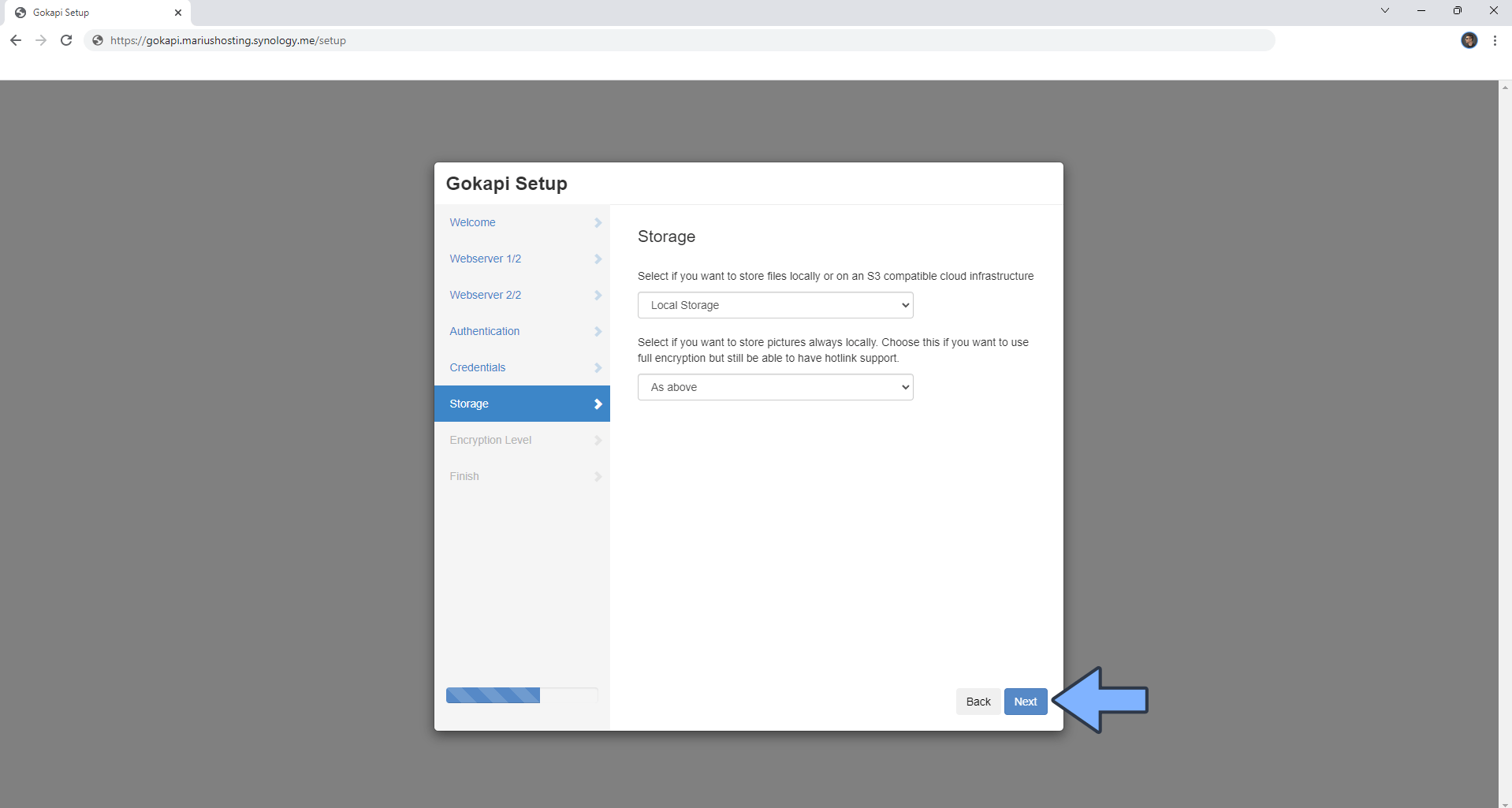
STEP 23
Click Next. Follow the instructions in the image below.
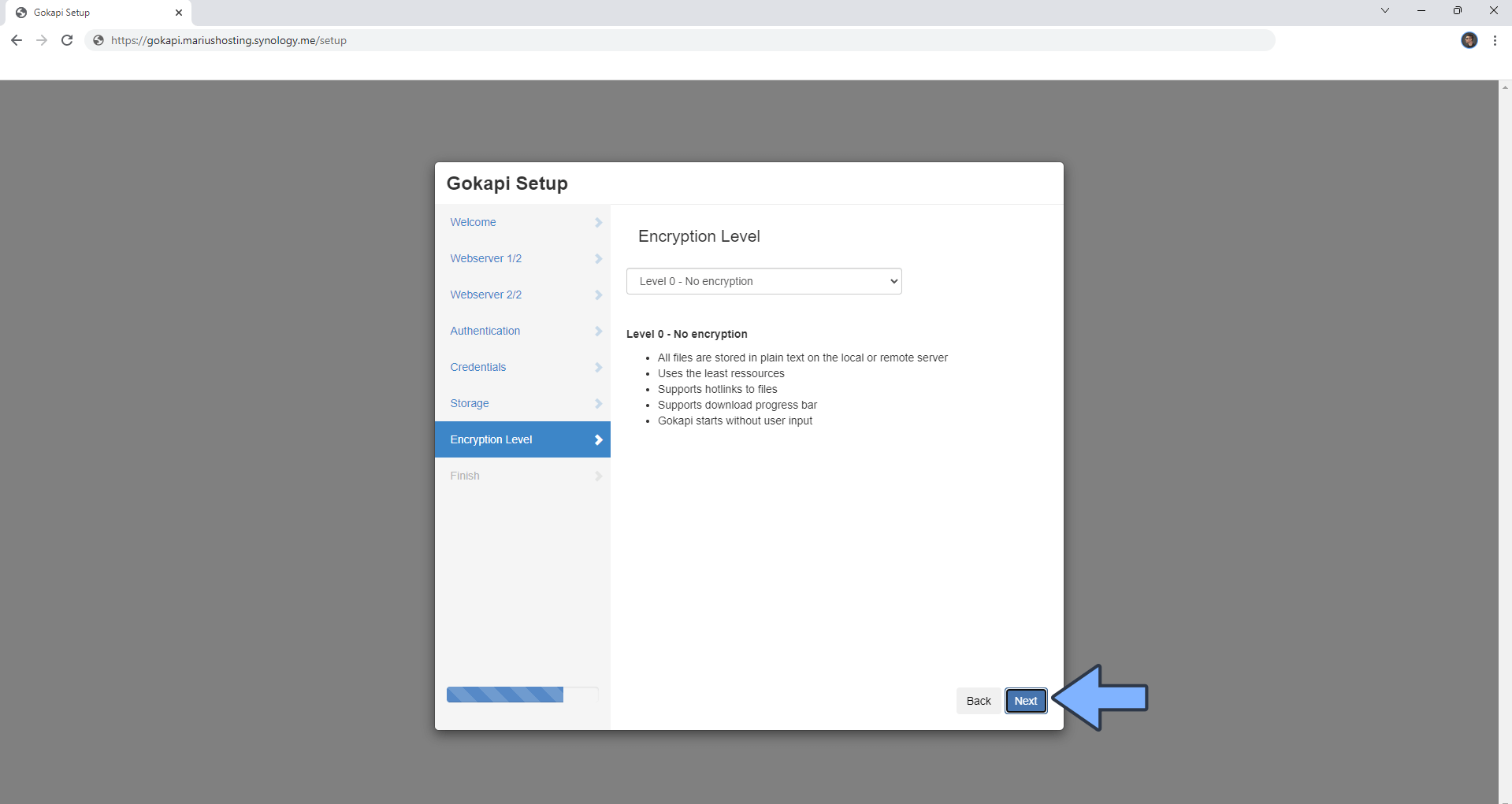
STEP 24
Click Submit. Follow the instructions in the image below.
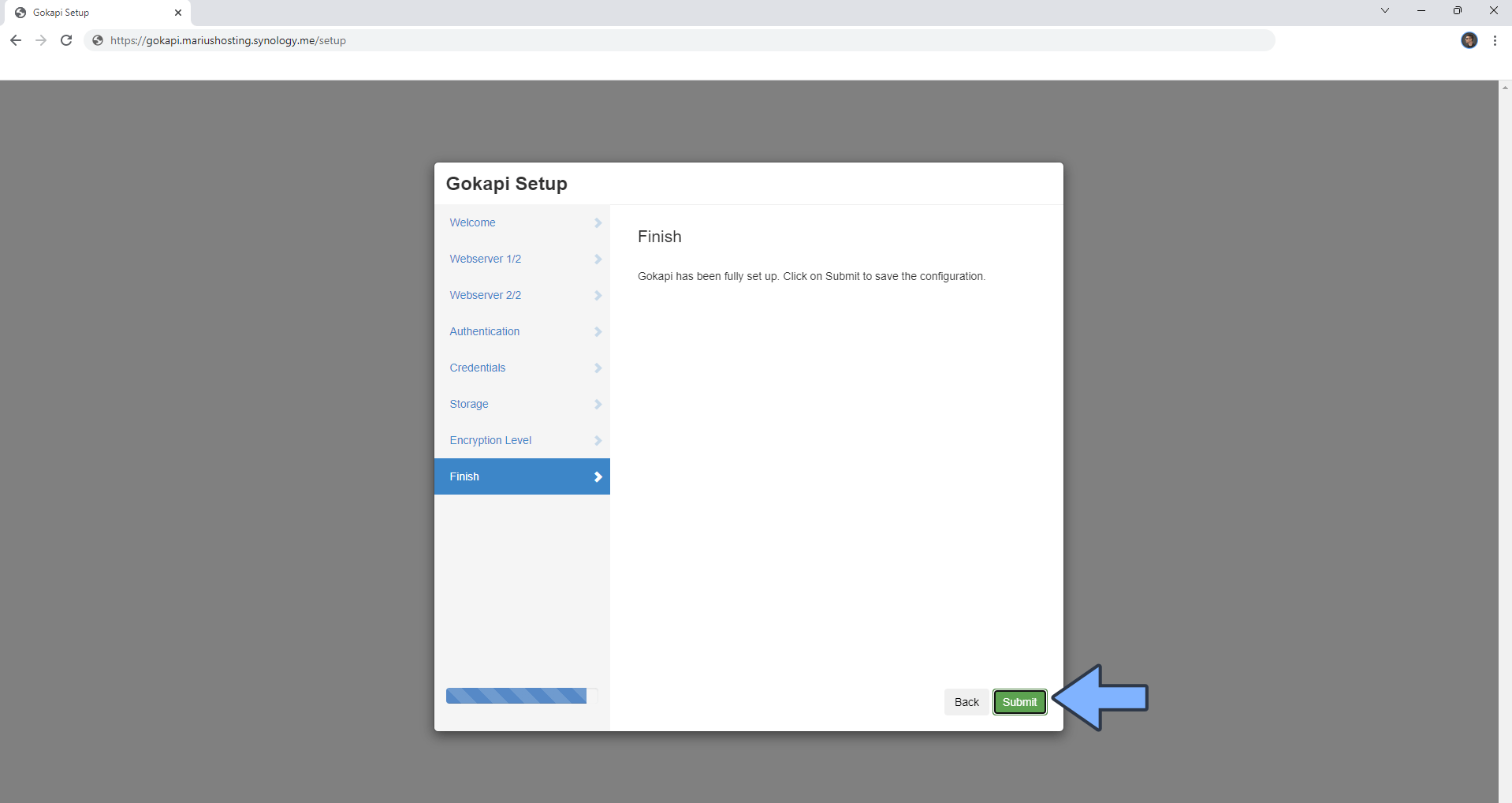
STEP 25
Click Continue. Follow the instructions in the image below.
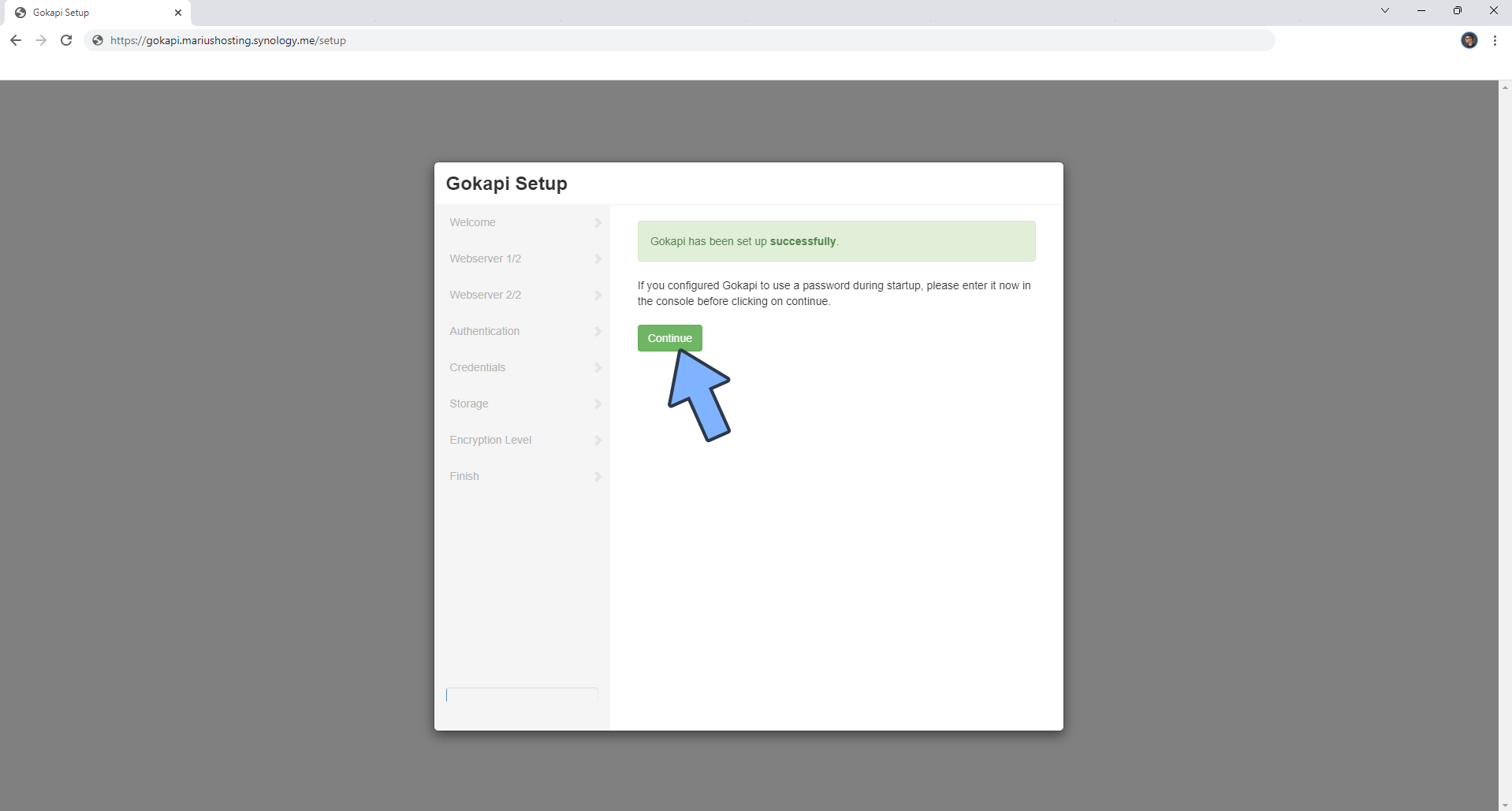
STEP 26
Type in your own Username and Password that you have previously created at STEP 21 then click Login. Follow the instructions in the image below.
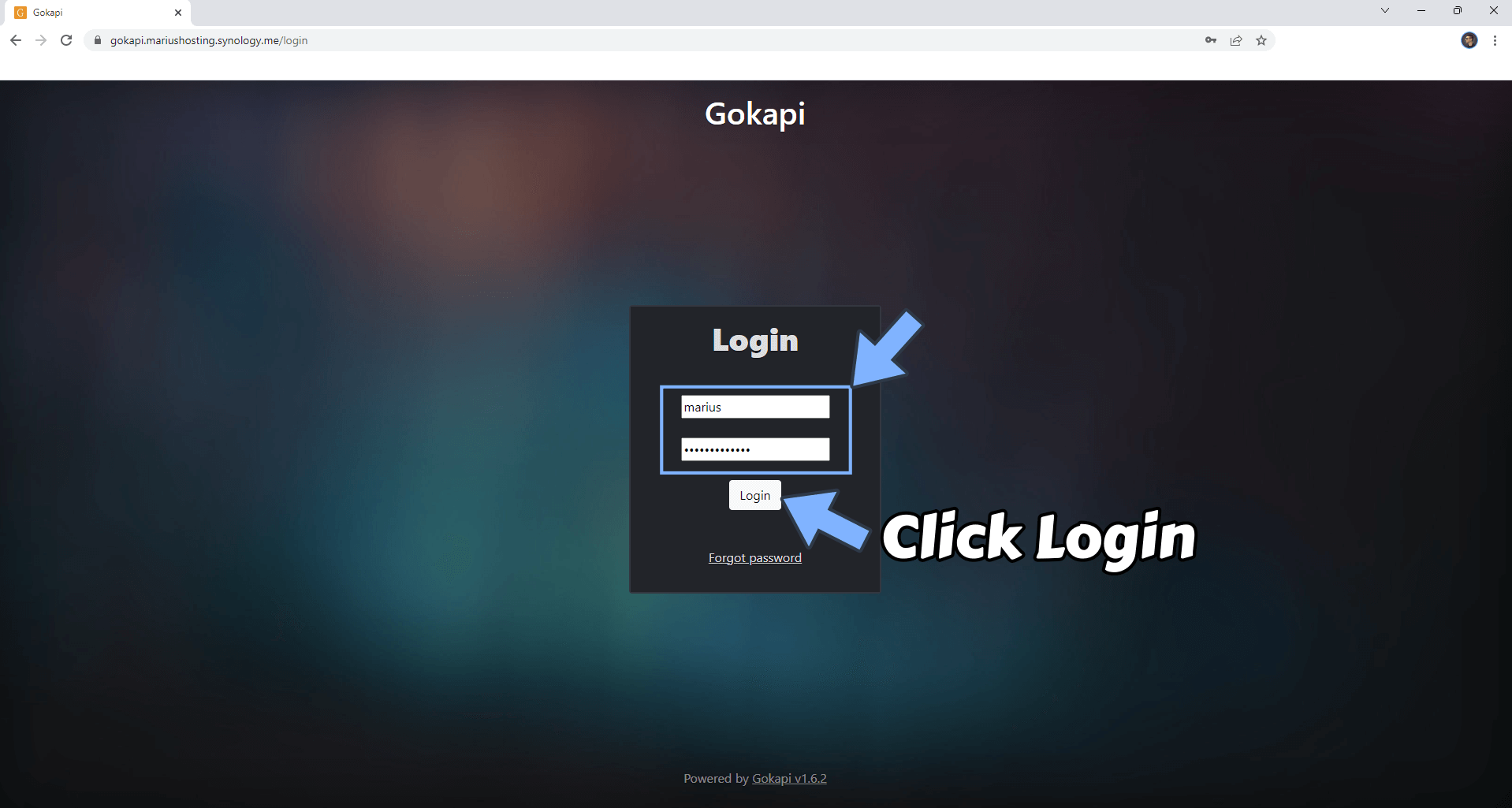
STEP 27
Upload your files then click Copy URL to share them. Follow the instructions in the image below.
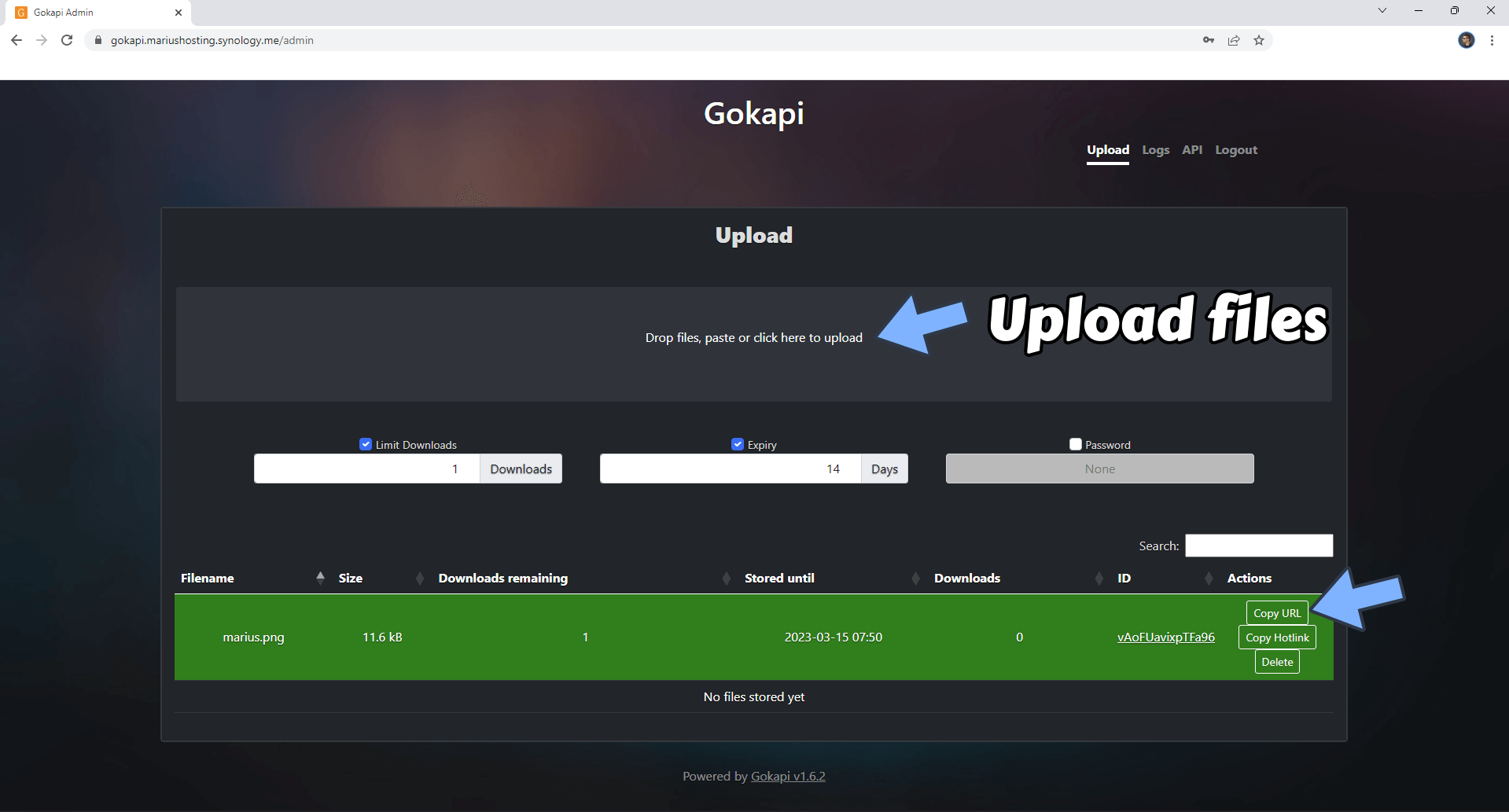
STEP 28
Your files at a glance ready to be downloaded.
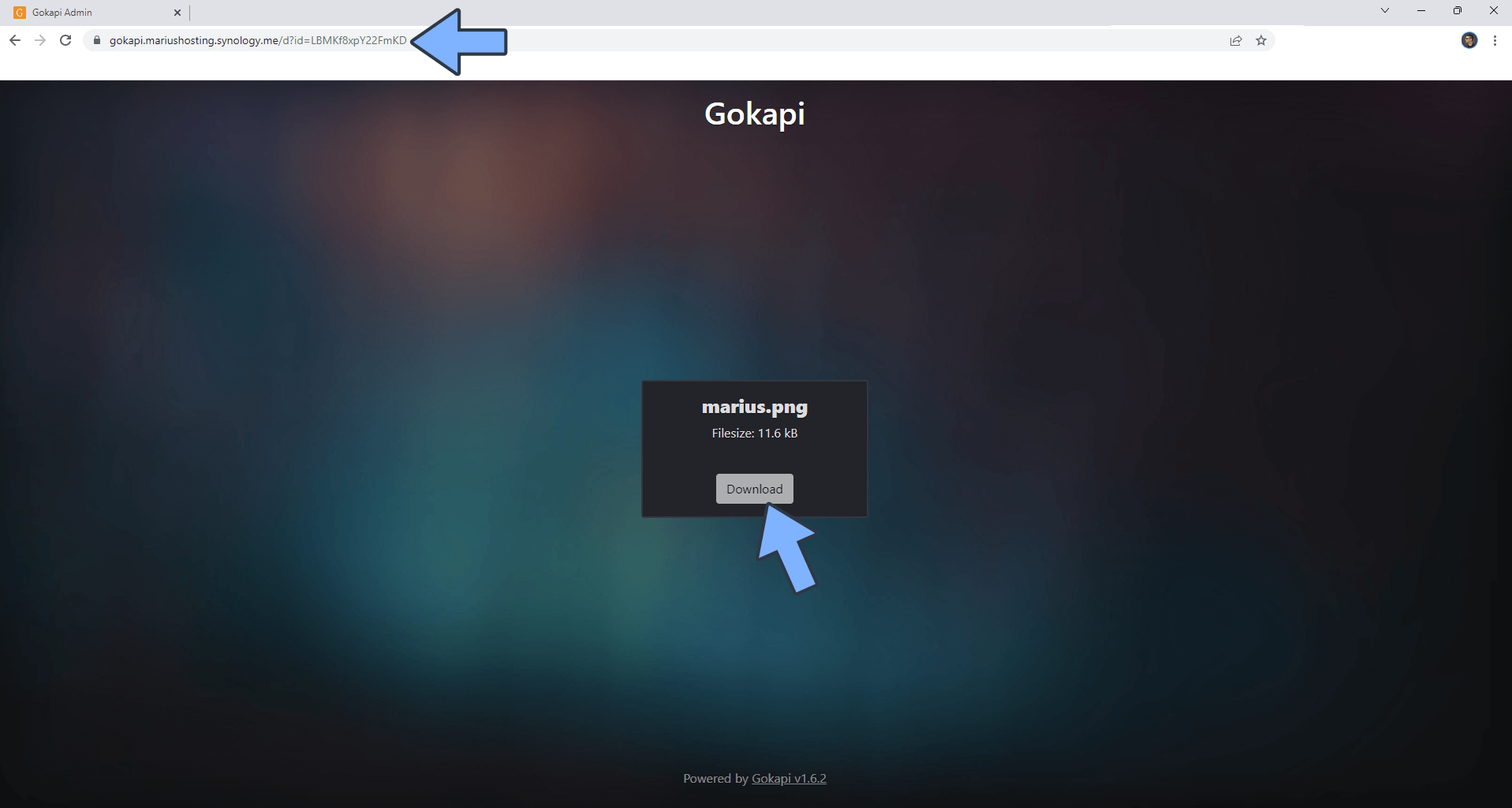
Enjoy Gokapi!
Note: Can I run Docker on my Synology NAS? See the supported models.
Note: How to Back Up Docker Containers on your Synology NAS.
Note: Find out how to update the Gokapi container with the latest image.
Note: How to Free Disk Space on Your NAS if You Run Docker.
Note: How to Schedule Start & Stop For Docker Containers.
Note: How to Activate Email Notifications.
Note: How to Add Access Control Profile on Your NAS.
Note: How to Change Docker Containers Restart Policy.
Note: How to Use Docker Containers With VPN.
Note: Convert Docker Run Into Docker Compose.
Note: How to Clean Docker.
Note: How to Clean Docker Automatically.
Note: Best Practices When Using Docker and DDNS.
Note: Some Docker Containers Need WebSocket.
Note: Find out the Best NAS Models For Docker.
Note: Activate Gmail SMTP For Docker Containers.
This post was updated on Saturday / August 23rd, 2025 at 6:28 PM
